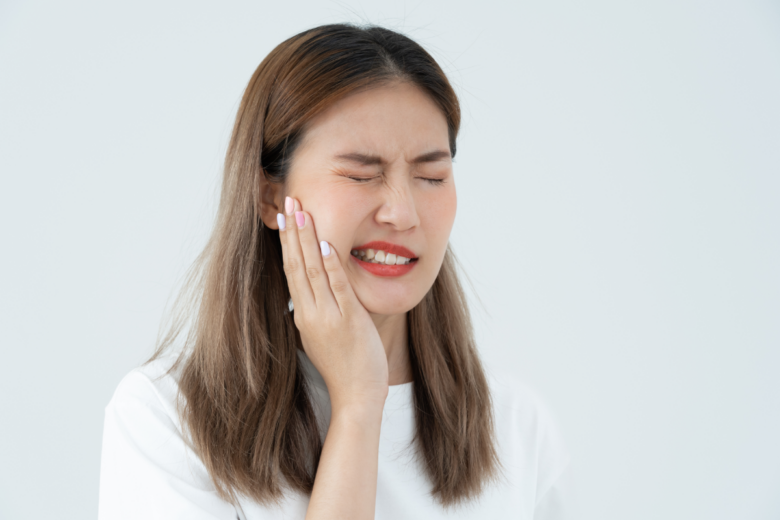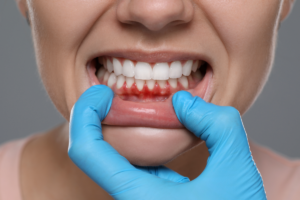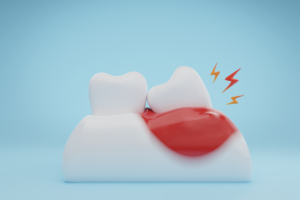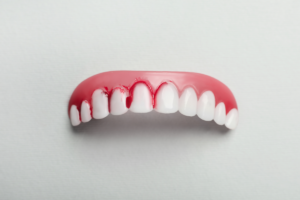Gingival recession is a condition that occurs when the gum tissue around your teeth wears away or pulls back, exposing more of the tooth or its root. This can lead to sensitive teeth, increased risk of cavities, and even tooth loss if left untreated. Many factors contribute to gingival recession, and understanding them can help you take the necessary precautions to protect your gum health. In this article, we will explore the top 10 factors that can worsen gingival recession and what you can do to prevent it.
Understanding Gingival Recession
Definition and Causes
Gingival recession is when the margin of gum tissue around your teeth recedes, revealing the root of the tooth. This can happen gradually, and early signs often go unnoticed. The main causes of gum recession include poor oral hygiene, gum disease, and even genetic predisposition.
Symptoms and Warning Signs
Some common symptoms include increased tooth sensitivity, the appearance of longer teeth, and visible gaps between your teeth and gums. If you notice any of these signs, it’s important to consult your dentist immediately to prevent further damage.
Poor Oral Hygiene Practices
Improper Brushing Techniques
One of the primary causes of gum recession is poor oral hygiene. Brushing your teeth with improper techniques or neglecting to brush regularly can cause plaque buildup, which can eventually lead to gum disease and recession.
Neglecting Flossing
Flossing is just as crucial as brushing when it comes to removing plaque and food particles from between your teeth. Failing to floss regularly can lead to gum irritation and infection, which can worsen gum recession over time.
Aggressive Brushing
The Impact of Hard Bristles
Using a toothbrush with hard bristles or brushing too aggressively can cause the gums to wear away. The abrasive action can damage the sensitive gum tissue, leading to recession. It’s best to use a soft-bristled toothbrush and gentle, circular motions when brushing.
How to Correct Brushing Habits
Switching to a soft-bristled toothbrush and brushing with gentle strokes can prevent unnecessary gum wear. Don’t forget to brush along the gum line, as this area is particularly vulnerable to recession.
Gum Disease (Periodontitis)
The Link Between Gum Disease and Recession
Untreated gum disease, or periodontitis, is a major contributor to gum recession. The inflammation caused by gum disease can weaken the tissue that holds your gums in place, leading to recession. Over time, this can cause irreversible damage to your gums and teeth.
How Untreated Gum Disease Contributes to Further Recession
If you don’t treat gum disease, the infection can spread deeper into the tissue, causing more significant gum loss. This can lead to tooth mobility and, in severe cases, tooth loss.
Genetics and Family History
Hereditary Factors That Increase Risk
Believe it or not, genetics can play a significant role in your risk for gum recession. If your family has a history of gum disease or dental issues, you may be more prone to gingival recession.
How Genetics Play a Role in Gum Health
Genetic factors can affect your gum tissue’s strength and resilience. If your gums are naturally thinner or more delicate, you may need to take extra precautions to maintain their health.
Smoking and Tobacco Use
The Damaging Effects of Tobacco on Gums
Smoking and other forms of tobacco use have been linked to a number of oral health problems, including gum recession. Tobacco can reduce blood flow to the gums, preventing them from healing and making them more susceptible to disease and recession.
Why Smokers Are at Higher Risk for Recession
Smokers are at a higher risk for gum disease, which can cause gums to recede. Additionally, tobacco use impairs the body’s ability to fight infections, leaving gums vulnerable to damage.
Hormonal Changes
How Pregnancy, Menopause, and Puberty Affect Gums
Hormonal changes during pregnancy, menopause, and puberty can all influence your gum health. These fluctuations can cause your gums to become more sensitive and prone to inflammation, increasing the likelihood of recession.
Hormonal Imbalance and Gingival Recession
Hormonal imbalances can lead to gum inflammation, which weakens the gum tissue and makes it more susceptible to recession. It’s important to monitor changes in your gum health during these periods and consult your dentist if necessary.
Misaligned Teeth
How Crooked Teeth Contribute to Gum Recession
When your teeth are misaligned, it can create areas where plaque and food particles accumulate. This can lead to gum irritation and eventually gum recession. Crooked teeth may also put additional pressure on the gums, accelerating recession.
Solutions for Misalignment
If you have misaligned teeth, braces or aligners can help correct the issue and prevent further gum damage. Consulting an orthodontist is the best course of action to improve both your dental alignment and gum health.
Teeth Grinding and Clenching
The Pressure of Grinding on Your Gums
Grinding and clenching your teeth puts a lot of pressure on your gums, leading to irritation and recession. Over time, this constant pressure can cause significant gum damage.
How to Prevent Bruxism
If you grind your teeth, wearing a night guard can protect your gums from excessive pressure. Additionally, reducing stress and practicing relaxation techniques can help prevent teeth grinding during sleep.
Poor Diet and Nutritional Deficiencies
The Role of Vitamin C in Gum Health
A poor diet lacking essential nutrients, especially vitamin C, can contribute to gum problems, including recession. Vitamin C is vital for collagen production, which helps keep your gums healthy and strong.
Diets That Can Weaken Your Gums
A diet high in sugary or acidic foods can lead to gum inflammation and recession. Eating a balanced diet rich in vitamins and minerals will help support gum health and prevent recession.
Aging Process
Natural Aging and Its Effects on Gums
As we age, our gums naturally lose some of their elasticity and strength. This can contribute to gradual gum recession over time. While this is a normal part of aging, proper oral care can help slow the process.
How to Care for Aging Gums
Maintaining good oral hygiene, regular dental check-ups, and a healthy diet can help you care for your gums as you age. Additionally, using a fluoride toothpaste can help protect against gum recession and other oral issues.
Medical Conditions That Can Exacerbate Recession
Diabetes and Its Impact on Gum Health
Diabetes can cause changes in the blood vessels, which can negatively affect your gum health. People with diabetes are at a higher risk for gum disease, which can lead to recession.
Other Conditions Linked to Gum Recession
Other medical conditions, such as autoimmune diseases or certain medications, can also increase the risk of gingival recession. If you have a chronic condition, talk to your dentist about the best ways to protect your gums.
Stress and Its Impact on Gum Health
The Connection Between Stress and Oral Health
Chronic stress can lead to teeth grinding and poor oral hygiene, both of which contribute to gum recession. Stress also weakens the immune system, making it harder for your body to fight off gum disease.
Coping Strategies to Protect Your Gums
Managing stress through techniques like meditation, exercise, and relaxation can help protect your gum health. It’s important to also maintain a consistent oral hygiene routine to keep your gums healthy during stressful times.
Improper Dental Procedures
How Incorrect Treatments Can Lead to Recession
In some cases, improper dental procedures, such as overzealous cleaning or incorrect fillings, can cause gum tissue damage and lead to recession. Always choose a skilled and experienced dentist to ensure your gum health is well taken care of.
Choosing the Right Dentist for Gum Care
When selecting a dentist, look for one with a track record of excellent care and attention to detail. Your dentist should be thorough and gentle during exams and procedures to minimize the risk of gum damage.
Gingival recession can be a painful and worrying condition, but by understanding the factors that contribute to it, you can take proactive steps to protect your gums. Maintaining good oral hygiene, avoiding tobacco, managing stress, and staying on top of dental check-ups are all essential in preventing gum recession. If you’re already experiencing signs of gum recession, consult your dentist for guidance on the best treatment options.
Selecting the right dental professional is crucial when it comes to preventing or addressing gingival recession. A dentist who is gentle yet thorough in their approach can help ensure that your gums are treated with care, reducing the risk of further complications. In this section, we will discuss how improper dental procedures can lead to gum recession and offer tips on how to choose the right dentist to safeguard your oral health. Additionally, we will explore effective ways to prevent gingival recession and maintain healthy gums for a lifetime.




